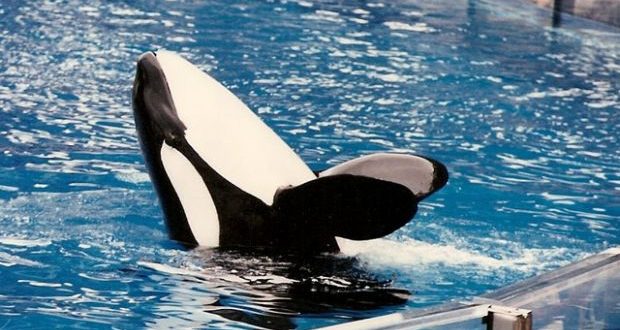A new report from a group seeking to end the practice of keeping whales in captivity challenges claims by the Vancouver Aquarium and others that research on captive whales helps whales in the wild.
The report “A Crumbling Case for Cetacean Captivity?” looked at original, peer reviewed papers from the Vancouver Aquarium and Marineland in Niagara Falls and counted how many times each study was citied in other scientific works in order to gauge the benefit research on captive cetaceans – whales and dolphins – had within the scientific community.
“Whale advocates, experts and members of the public have long been skeptical of the industry’s publicly-stated reasons for keeping cetaceans captive,” states Debra Probert, Executive Director of the Vancouver Humane Society. “Many of those arguments are now being vigorously challenged. We decided to look into a couple of key aspects of education and research at two captive cetacean facilities to see if they are really making a difference in the lives of wild cetaceans.”
“Given that the biological and behavioural needs of whales and dolphins cannot be met in an aquarium and there is little, if any, value in the education or conservation programs associated with keeping cetaceans on exhibition, it is time to empty the tanks,” said Zoocheck Campaigns Director Julie Woodyer.
According to marine mammal scientist Dr. Naomi Rose, “Society’s attitude toward whale and dolphin captivity is changing rapidly. Recently, Ontario banned the possession of orcas, the National Aquarium announced plans to retire its dolphins to a seaside sanctuary, SeaWorld pledged to end the breeding of its captive orcas, the State of California codified this corporate policy in law, the Whale Sanctuary Project was formed to establish the first cold water cetacean sanctuary in the world and the US government designated the Sakhalin-Amur population of belugas in Russia’s Sea of Okhotsk as depleted, meaning the import of these animals is prohibited. The times they are a’changin’ and Vancouver needs to evolve and change as well.”
Agencies/Canadajournal
 Canada Journal – News of the World Articles and videos to bring you the biggest Canadian news stories from across the country every day
Canada Journal – News of the World Articles and videos to bring you the biggest Canadian news stories from across the country every day




History proves that experiments on captives are not necessary. There is a lucrative research industry mainly funded by public taxes under the guise of conservation. The so called “rescues” have also been a free source of animals for aquariums and zoos.
Beluga communication studies started in 1947. The recent captive research at the Vancouver is not needed baseline information because the relevant basic knowledge has been known for decades. The impacts of pollution and noise (including diet studies) started in the 70s. All studies were done in the wild and that led to beluga protection measures.
Further, it is already known that major threats include the decimation of fish populations, pollution, military weapon tests, and disturbances from boats. It is time to continue to implement the research information by furthering actions to protect wildlife and their habitats.